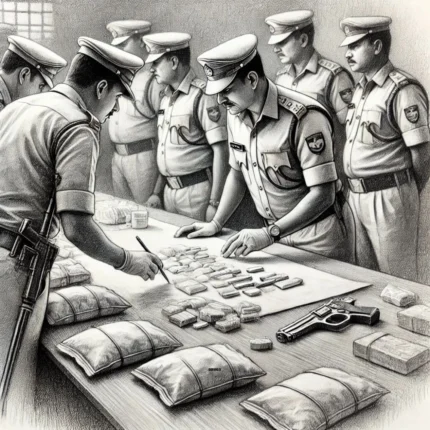Cheating
Introduction to Cheating
Cheating refers to the act of deceiving someone for personal gain, often resulting in harm or disadvantage to the victim. In legal terms, it is now primarily addressed under the Bharatiya Nyaya Sanhita (BNS), 2023, which defines and penalizes acts of cheating and fraud under its updated provisions.
Cheating can take various forms, including fraudulent inducement, where one party misleads another into a contract, and breach of trust, where an individual misappropriates property. The consequences can lead to legal repercussions, financial losses, and emotional distress for those affected.
Key Legal Provisions under BNS
- Section 302 (BNS):
Defines cheating as an act of deceiving someone intentionally to gain an unfair advantage, causing harm to the victim.
- Section 315 (BNS):
Addresses aggravated cheating, particularly when it involves inducing someone to deliver property, money, or valuable securities through deceit.
Cheating is a criminal offense under Section 415 of the Indian Penal Code (IPC), involving deception with the intent to cause wrongful loss or gain. It can take various forms, including fraud, misrepresentation, and breach of trust.
Types of Cheating Cases We Handle
- Financial Fraud & Misrepresentation: Cases involving deceitful financial transactions, fake agreements, and fraudulent contracts.
- Property & Real Estate Fraud: Legal assistance for cases of false property claims, illegal transfers, and fraudulent sales.
- Business & Corporate Fraud: Defense against allegations of corporate misrepresentation, embezzlement, and breach of fiduciary duty.
- Marriage & Relationship Fraud: Legal support for cases involving false promises of marriage, dowry fraud, and breach of trust.
- Cyber Cheating & Online Fraud: Representation in cases of identity theft, phishing scams, and digital deception.
Legal Consequences of Cheating Under BNS
- Simple Cheating (Section 316 BNS) – Punishable with up to one year of imprisonment, a fine, or both.
- Aggravated Cheating (Section 317 BNS) – Involves dishonest inducement to deliver property, punishable with up to seven years of imprisonment and a fine.
Legal Procedure in Cheating Cases
1. Filing a Complaint: The process begins with the victim filing a complaint at the local police station or with the relevant authorities under the Bharatiya Nagarik Suraksha Sanhita (BNSS), 2023, detailing the nature of the cheating.
2. Evidence Collection: Gathering evidence is crucial for substantiating claims. This may include:
- Communication records (emails, messages).
- Financial documents.
- Witness statements.
3. Court Proceedings: Both parties present their cases in court under the procedural framework of BNSS, where the judge evaluates the evidence and arguments.
4. Final Judgment: The court issues a ruling that may include penalties for the offender, such as fines or imprisonment, and may also address restitution for the victim.
Rights of Victims in Cheating Cases
- Right to File a Complaint: Victims have the right to report cheating incidents to law enforcement under BNSS.
- Right to Compensation: Victims may seek damages for financial losses incurred due to cheating.
- Right to Legal Representation: Individuals are entitled to legal counsel throughout the proceedings.










Reviews
There are no reviews yet.